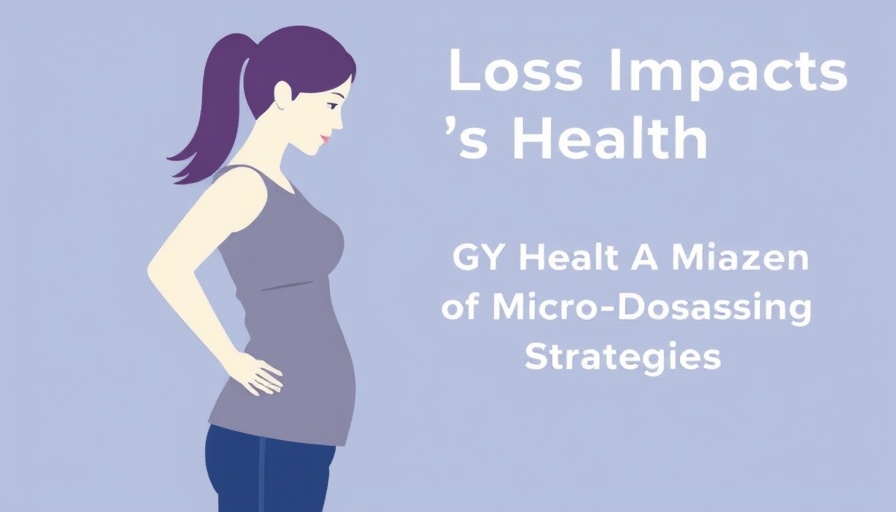
The Transformative Impact of Weight Loss on Women's Health
Weight loss is often seen merely as a cosmetic goal, but its impact on women's health, particularly during menopause, is profound. Achieving a healthy weight transcends aesthetics; it is a pivotal move towards hormonal balance, improved heart health, and a reduction in consequential health risks that many women face during this life stage.
As women enter menopause, they encounter numerous challenges. Notable among these are stubborn weight gain, changes in body fat distribution, insulin resistance, and an increased risk of cardiovascular issues. For many, these changes can be disheartening and lead to a cycle of weight management struggles. Importantly, achieving and maintaining a healthy weight can alleviate common issues like hot flashes, sleep disturbances, and inflammation, contributing to improved long-term metabolic health.
Women’s Health During Menopause: The Need for Weight Management
Research underscores the critical link between weight loss and enhanced health outcomes for women during menopause. The menopausal transition can result in visceral fat accumulation, further increasing insulin resistance and heightening cardiovascular risk. Recent studies suggest that clinically significant weight loss—potentially around 20%—can be facilitated through GLP-1 receptor agonists like semaglutide and tirzepatide. Such therapies are proving beneficial not only for women undergoing menopause but for those at any reproductive stage.
A modest reduction in weight can yield significant benefits, including decreased insulin resistance, reduced risk for type 2 diabetes, and diminished cardiovascular disease chances. Furthermore, shedding excess pounds can improve symptoms common to menopause and boost self-esteem.
Decoding GLP-1 Receptor Agonists: A New Approach to Weight Loss
GLP-1 receptor agonists, such as semaglutide and tirzepatide, represent a promising advancement in medical weight management. These medications mimic the hormone GLP-1, which is instrumental in promoting glucose-induced insulin secretion and delaying gastric emptying. As a result, users often experience decreased appetite and subsequent weight loss. These medications have been approved for weight management and are most effective when combined with lifestyle changes.
While standard dosing is well-supported by evidence, some women are turning to micro-dosing strategies as a means of maintaining their weight loss. Micro-dosing involves taking lower-than-usual doses of the medications and has shown promise in maintaining results long-term. However, it’s crucial that such approaches are overseen by healthcare professionals to ensure safety and effectiveness.
A Holistic Approach to Women’s Health during Menopause
Understanding the connection between weight management, hormonal health, and the strategic use of medications like GLP-1 receptor agonists opens a roadmap toward living healthier and more vibrant lives as women age. It's vital for women to recognize that their health during menopause can significantly improve with informed weight management strategies. The integration of medical therapies can assist in making this journey easier, but lifestyle changes remain a crucial component.
Preparing for the Future: Knowledge is Power
As women navigate through or plan for menopause, they must be educated about the implications of weight changes on their health. Being proactive about one's lifestyle choices, understanding the benefits of medications, and maintaining open communication with healthcare providers are fundamental steps in achieving successful health outcomes.
In summary, weight loss plays a vital role in women's health during menopause, offering benefits that extend beyond physical appearance. With advanced medical treatments and a focus on holistic health, women can face this transformative life phase with confidence.
 Add Row
Add Row  Add
Add 



Write A Comment